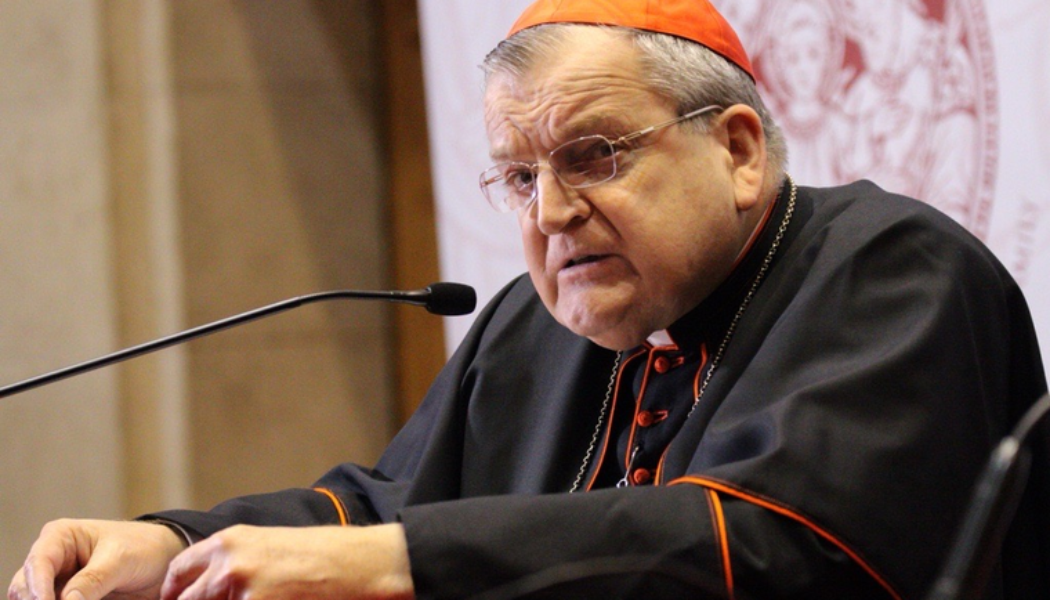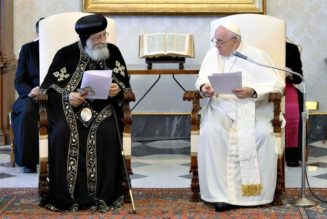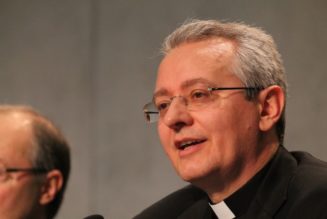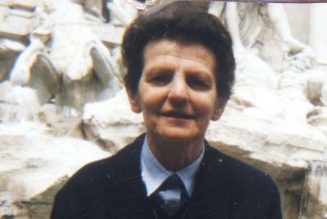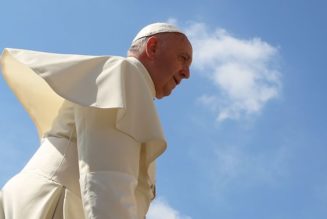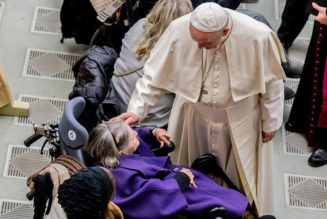
VATICAN CITY — Multiple sources are reporting that Pope Francis is planning on withdrawing Cardinal Raymond Burke’s Rome residence and salary because he sees him as working against the unity of the Church, although the Vatican has yet to officially announce such a step.
The alleged comments were first reported Monday by the New Daily Compass, an Italian Catholic online news site. On Nov. 29, Catholic journalist Austen Ivereigh reported that he himself had met with the Holy Father on Nov. 27 offering him confirmation saying, “Francis told me he had decided to remove Cardinal Burke’s cardinal privileges — his apartment and salary — because he had been using those privileges against the Church.”
Several sources told the Register that they had been informed that during a meeting with the heads of Dicasteries of the Roman Curia on Nov. 20, the Pope reportedly said that he was considering withdrawing such privileges from Cardinal Burke because he believed he was “working against the Church and against the unity of the Church.”
Variations of the Pope’s remarks were reported by both Reuters and the Associated Press, the latter quoting “two people briefed on the measures.” One source, who was a participant at the Nov. 20 meeting, told the AP that the Pope was taking the action because he viewed the cardinal as a source of “disunity” in the Church. Citing another anonymous source, the AP said Francis was removing Cardinal Burke’s privileges of a subsidized Vatican apartment and salary as a retired cardinal “because he was using the privileges against the Church.”
Riccardo Cascioli, director of the New Daily Compass, told the Register Nov. 28 he is “certain” of the veracity of his report as it came to him from several “reliable sources.” Cascioli added that after he had published the story, he received “a further confirmation.”
The Register contacted Cardinal Burke’s office; a representative said the American cardinal, who is currently visiting the United States, had not received any official communication about the matter. His secretary also said the cardinal would not be making a statement at this time.
Vatican spokesman Matteo Bruni did not respond to a Register inquiry about the allegations. In comments to the AP, he referred their inquiry to Cardinal Burke’s office, saying he didn’t have “anything particular to say about that.”
Other reports that the Pope may be considering removing Cardinal Burke from the College of Cardinals appear to lack foundation at this time, with no Rome sources confirming such a move.
Senior Church sources in Rome believe that if the Pope follows through with his remarks, it would be a way of Francis putting all cardinals “on notice,” and that if they do not toe the line, this is likely to be their fate.
Strained Relationship
Already widely regarded in the 2000s as a highly accomplished canonist, Benedict XVI appointed Cardinal Burke to the Apostolic Signatura in 2008, and elevated him to cardinal two years later.
But the American cardinal and the Pope began to frequently clash soon after the Pope’s election in 2013, mainly on areas related to Church law, doctrine and morals. In 2014, Cardinal Burke strongly criticized the Pope for allowing civilly remarried divorcees to receive Holy Communion in some cases, and for reforming the annulments process. In response, Francis removed him from the Apostolic Signatura and appointed him cardinal patron of the Sovereign Military Order of Malta.
After a further clash with Francis over the running of the order and the cardinal’s determination to uphold the Church’s teaching in the face of a contraceptive scandal, Francis effectively deprived Cardinal Burke of that office in 2017, transferring his duties to a special delegate of the Pope. The cardinal formally retired from the position in June this year on turning 75, and was replaced by Cardinal Gianfranco Ghirlanda, 81.
Cardinal Burke’s outspoken criticism of this pontificate, made firmly but always with courtesy, has nevertheless clearly rankled Pope Francis over the years who has made occasional barbed comments against him.
When Cardinal Burke, who resisted taking a COVID vaccine and contracted COVID in 2021 which nearly killed him, Francis told reporters that “even in the College of Cardinals there are some deniers,” adding “one of them, poor man, is hospitalised with the virus.”
In his steadfast criticism of the Pope’s approach to doctrine and especially the Church’s moral teaching, he helped issue two sets of dubia — questions to the Pope aimed at eliciting clear answers to moral and doctrinal questions — the first of which, issued in 2016, the Pope did not answer, and the second, published this summer, he responded to in a manner that he and the other four cardinal signatories deemed unsatisfactory.
Cardinal Burke has also put his name to several other letters and initiatives calling on Pope Francis to correct his teaching and leadership of the Church, most recently regarding a book critical of the Synod on Synodality, and at one time he planned to issue a formal correction of the Pope but lacked the necessary backing. The cardinal was also vociferous in his criticism of Traditionis Custodes (The Guardians of Tradition), Pope Francis’ highly controversial restrictions on the traditional Latin Mass.
In 2018, he also spoke of the limits of papal power, underlined the importance of popes safeguarding and promoting Church unity, and warned that papal actions that fail to act in conformity with Divine Revelation, Sacred Scripture and Tradition “must be rejected by the faithful.”
Clamping Down on Criticism?
Since Benedict XVI’s death almost a year ago, Pope Francis appears to have lost the previous restraint he had in responding to such criticism and has begun to clamp down hard on those viewed as opposed to his program for the Church.
Earlier this year he ordered Archbishop Georg Gänswein, Benedict XVI’s former private secretary who wrote a book critical of his pontificate, to leave Rome and return to Germany. Most recently, he removed Bishop Joseph Strickland from the Diocese of Tyler, Texas, apparently in part for his outspoken criticism on social media of this pontificate’s leadership.
The Pope’s more forceful response has also been witnessed through comments made by the new prefect of the Dicastery for the Doctrine of the Faith, Cardinal Victor Fernandez.
In an interview with the Register in September, the Argentinian theologian warned that Cardinal Burke does not have the same charism as Pope Francis nor a “special gift of the Holy Spirit to judge the doctrine of the Holy Father,” and that those who think they do have such a charism are on a road to “heresy and schism.”
Although Cardinal Burke turned 75 at the end of the June, the normal retiring age for cardinals, one factor possibly negating these reports is that he continues to work as a valued member of the Apostolic Signatura, the Church’s highest court that the cardinal headed as prefect from 2008 to 2014.
Despite removing him as prefect in 2014, Pope Francis recognized Cardinal Burke’s abilities as a widely respected canonist by reappointing him to work for the court in 2017 where his contribution is widely regarded to have been indispensable. “The Signatura could hardly do without him,” a Rome canonist told the Register Nov 28. “There’s lot of work to do there.”
